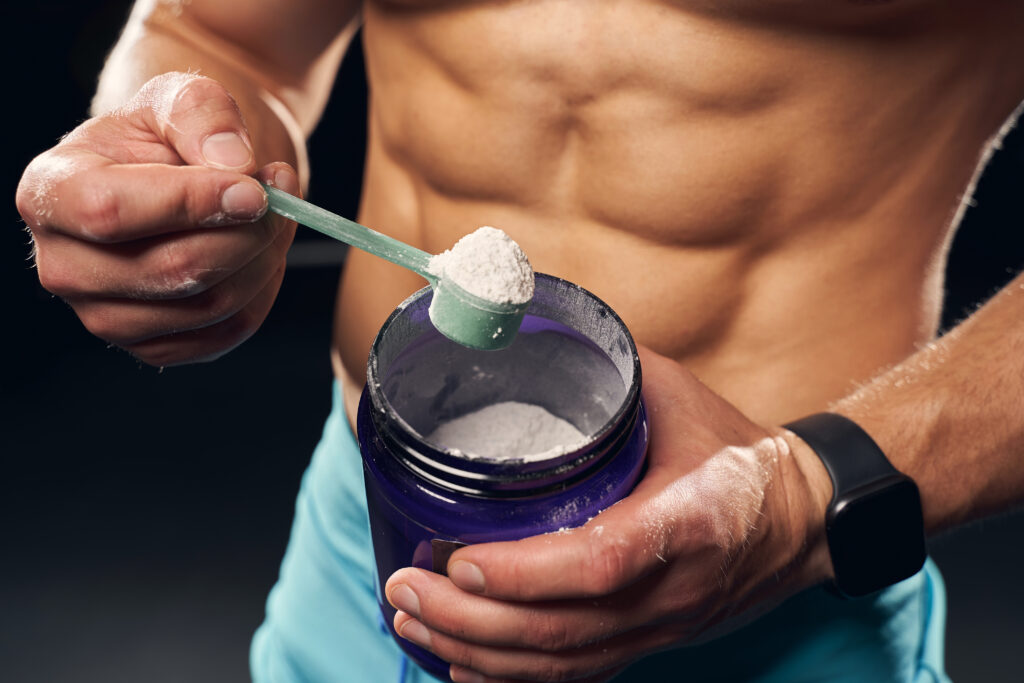Supplements are now a billion-dollar industry, with athletes and fitness enthusiasts turning to everything from protein powders to fish oil in hopes of building muscle and speeding recovery. But with so many options—and plenty of hype—how do you know what actually works? If you’re already taking a basic multivitamin and omega-3 supplement, you may be wondering: do I really need anything more to build muscle and strength? Let’s break down the science.
Do You Really Need Supplements to Build Muscle and Strength? The Science Says…
The Basics: Do Multivitamins and Omega-3s Help?
Many people take multivitamins as “nutritional insurance,” and they can be beneficial if you’re deficient in key vitamins or minerals. However, research shows that for generally healthy individuals, multivitamins may not significantly improve athletic performance or muscle growth unless a deficiency exists (Mason et al., 2020).
Omega-3 fatty acids, particularly EPA and DHA, have been shown to support heart health and reduce inflammation. Emerging evidence also links omega-3s to muscle recovery and protein synthesis. A 2016 study published in The American Journal of Clinical Nutrition found that older adults who supplemented with 4 grams of fish oil daily increased muscle protein synthesis rates following resistance training (Smith et al., 2011).
Protein: The Cornerstone of Muscle Building
If you’re not already supplementing with protein—and your diet is lacking—this will be the one area worth investing in. Protein, particularly whey protein, is one of the most thoroughly researched supplements for increasing muscle mass and enhancing recovery. Numerous studies show that consuming 20–40 grams of high-quality protein after workouts supports muscle protein synthesis (Morton et al., 2018).
If you’re getting 1.6–2.2 grams of protein per kilogram of body weight daily through whole foods, you may not need a supplement. But for convenience or to meet higher protein needs, protein powders can be a practical choice.
Creatine Monohydrate: Backed by Decades of Research
If you’re only going to add one more supplement for strength and performance, consider creatine monohydrate. Creatine increases phosphocreatine stores in your muscles, helping you generate more ATP—the energy currency used during intense exercise.
A 2012 meta-analysis published in the Journal of Strength and Conditioning Research concluded that creatine supplementation improves maximal strength, sprint performance, and lean body mass (Branch, 2003). It’s also one of the most affordable and safe supplements, with decades of safety data supporting its use.
Vitamin D and Magnesium: Underrated but Important
Vitamin D deficiency is common, especially in people who live in northern climates or spend most of their time indoors. Low vitamin D levels have been linked to reduced muscle function and strength. Supplementing with vitamin D can help if levels are low, as confirmed by a 2013 review in Sports Health (Close et al., 2013).
Magnesium is involved in muscle contractions and energy production, and deficiencies can impair exercise performance. While not always necessary as a supplement, athletes with high sweat loss or poor diets may benefit from supplementation.
What to Avoid: Flashy but Unsupported
Pre-workouts with proprietary blends, testosterone boosters, and BCAAs often get attention but don’t hold up to scrutiny. For example, BCAA’s (branched-chain amino acids) are often marketed for recovery, but research suggests that they’re less effective than complete protein sources that contain all nine essential amino acids (Jackman et al., 2017).
Final Thought: Don’t Pay for Expensive Urine
The old saying that “man has the richest urine” has a kernel of truth. Many supplements are excreted if your body doesn’t need them. If your diet is already balanced, adding more may not provide additional benefits—and can be a waste of money.
Conclusion
For most people aiming to build muscle and improve recovery, a smart supplement stack might include:
- Whey protein (if dietary intake is low)
- Creatine monohydrate
- Omega-3s (EPA and DHA)
- Vitamin D and magnesium (if deficient)
Stick to what the science supports, skip the hype and “bro-science”, and focus on consistent training and eating a whole-food diet.
Jefit: Embrace the Grind
If you’re serious about building muscle, tracking workouts, and reaching your fitness goals in 2025, the Jefit strength training app is the perfect tool to help you succeed. With over 20 million downloads and 12+ million users, Jefit is one of the best tracking apps for strength training. Recognized as the Best Fitness App of 2024 and featured in Men’s Health, PC Magazine, and USA TODAY, Jefit stands out with its user-friendly design, advanced workout tracking, and over 42,000 five-star ratings. Whether your goal is to gain strength, track progress, or optimize protein intake, Jefit has everything you need. Remember, sustainable progress is built on consistency, science, and patience.

References
- Smith, G. I., et al. (2011). Omega-3 polyunsaturated fatty acids augment the muscle protein anabolic response to hyperinsulinemia-hyperaminoacidemia in healthy young and middle-aged men and women. The American Journal of Clinical Nutrition, 93(2), 402-412. https://doi.org/10.3945/ajcn.110.005611
- Morton, R. W., et al. (2018). A systematic review, meta-analysis and meta-regression of the effect of protein supplementation on resistance training–induced gains in muscle mass and strength in healthy adults. British Journal of Sports Medicine, 52(6), 376-384. https://doi.org/10.1136/bjsports-2017-097608
- Branch, J. D. (2003). Effect of creatine supplementation on body composition and performance: a meta-analysis. International Journal of Sport Nutrition and Exercise Metabolism, 13(2), 198-226. https://doi.org/10.1123/ijsnem.13.2.198
- Close, G. L., et al. (2013). Vitamin D and physical performance. Sports Health, 5(6), 438-445. https://doi.org/10.1177/1941738113498450
- Jackman, S. R., et al. (2017). Branched-chain amino acid ingestion stimulates muscle myofibrillar protein synthesis following resistance exercise in humans. Frontiers in Physiology, 8, 390. https://doi.org/10.3389/fphys.2017.00390
- Mason, P., et al. (2020). Multivitamins: Do you need them? Harvard Health Publishing. https://www.health.harvard.edu/blog/multivitamins-do-you-need-them-2020022118923
- Velocity-Based Strength Training: Lift Smarter, Not Heavier - January 28, 2026
- Optimal Recovery Time for Strength Training - January 21, 2026
- Train Smarter With MED: Minimum Effective Dose Strength - January 14, 2026
